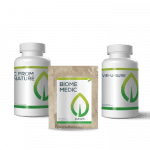MRSA is an infection from staph bacteria that are resistant to ordinary antibiotics. Any infection that is antibiotic resistant can be difficult to treat. The good news is that the medical world has lots of tools to fight infections. So do not despair, if you or a loved one gets a MRSA diagnosis. Unfortunately, anyone can get MRSA, however the healthier you are the more resistant you are to infection.  There are some factors that increase your risk.
There are two types of MRSA infection:  HA-MRSA (hospital or medical infection) This is a staph infection from being in the hospital, having used an invasive medical devise or MRSA developed while living in a nursing home environment. Risk factors for this would be recent surgery or a health care worker. CA-MRSA (environmentally obtained infection). This type of staph infection comes from participating in a community environment.  Such as, contact sports, military camps, child care centers, or jail. This type of infection is spread from skin to skin contact. Those with HIV are also at higher risk for a CA-MRSA infection and those that use injected drugs.
Symptoms:
- Wounds that won’t heal or becomes swollen and oozing
- Skin infection, rash or bump, that is red, swollen painful, warm to touch, full of pus
- Fever
- Chest pain
- Cough
- Fatigue
- Headache
Causes:
The staph bacteria that leads to MRSA is present on skin or in the nose of about 1/3 of the total population, so people who are not ill can be carriers without ever knowing it.  Bacteria can enter the body through a cut or wound. You get bacteria inside you when you come into contact with infected people or things (needles, surgical instruments, medical devices, gym equipment, workout towels or mats etc.)
Over prescribing prescription antibiotics has contributed to drug resistant bacteria. This is why it is important to only take antibiotics when necessary.
Risk Factors:
There are some things that increase your odds of getting a MRSA infection. If you are in any of these situations or have any of these conditions you need to be more aware of what is going on with your body.
- Recently Hospitalized
- Healing from Surgery
- Receiving Treatment through Intravenous Lines
- Use a Urinary Catheter
- Are in a Long Term Care Facilities
- Crowded Living Environments (Daycares, nursing homes, hospitals, prisons, dorms, crowded urban environments)
- Undergoing Kidney Dialysis
- Receiving Cancer Treatments
- Have a Compromised Immune Systems
- Athletes –Particularly those who participate in contact sports or can come in contact with wounds from other players. (Skin to Skin). This affects student athletes as well as professionals.
- People who have gotten tattoos.
- Have had a recent influenza infection.
- Have medical devices inside their body.
Complications:
If a MRSA infection is not treated it can lead to sepsis. Sepsis, to put it simply, is an infection in the blood stream that involves inflammatory and immunosuppressive activity. Sepsis makes things even more complicated. Prompt treatment of a MRSA infection is important.
Treatment:
The outlook is generally good. The healthier you are the quicker you will bounce back.
- Infection drained by a medical professional.
- Mupirocin topically applied to sores.
- Oral antibiotics
- Intra-venous medications in severe cases.
- Keep sores bandaged and clean.
- Wash all bedding and clothing in the hottest water possible.
Prevention:
Take good care of your body through healthy practices such as, good nutrition, plenty of exercise and maintain a healthy weight. A good functioning immune system is all important.
- Overall good sanitization is important. Washing hands with soap and water is best use hand sanitizer if that is not available.
- Keep environments as germ free as possible. Clean hospital rooms, gym equipment, locker rooms frequently.
- Launder bed linens and towels in the hottest water possible and dry on a high heat setting.
- Keep personal items personal. Do not share athletic equipment, towels, razors or bedding.
- Wash all cuts and scrapes as soon as possible. Keeping wounds clean is vital.
- Cover wounds. This protects you from getting germs down into an open wound.
- Seek medical attention quickly if you think you have an infection.
Takeaway:
MRSA is not an infection to be taken lightly. It can be difficult to treat due to its antibiotic resistant nature. However, it is usually treatable. Do not be complacent; the early you treat a wound or skin infection is important. If you are frequently in locker rooms or close living environments good hygiene for your person and possessions can help you avoid MRSA.
Your immune system is your defense against all kinds of germs and infections. Taking good care of your overall health will keep your immune system strong.
Please see a health care professional if you are in the elevated risk category and have any type of wound or rash that isn’t healing as it should.
Sources:
https://www.merriam-webster.com/dictionary/sepsis
https://www.mayoclinic.org/diseases-conditions/mrsa/symptoms-causes/syc-20375336
https://www.cdc.gov/mrsa/community/index.html
https://www.hopkinsmedicine.org/health/conditions-and-diseases/what-does-mrsa-look-like
https://medlineplus.gov/ency/article/007261.htm









Reply